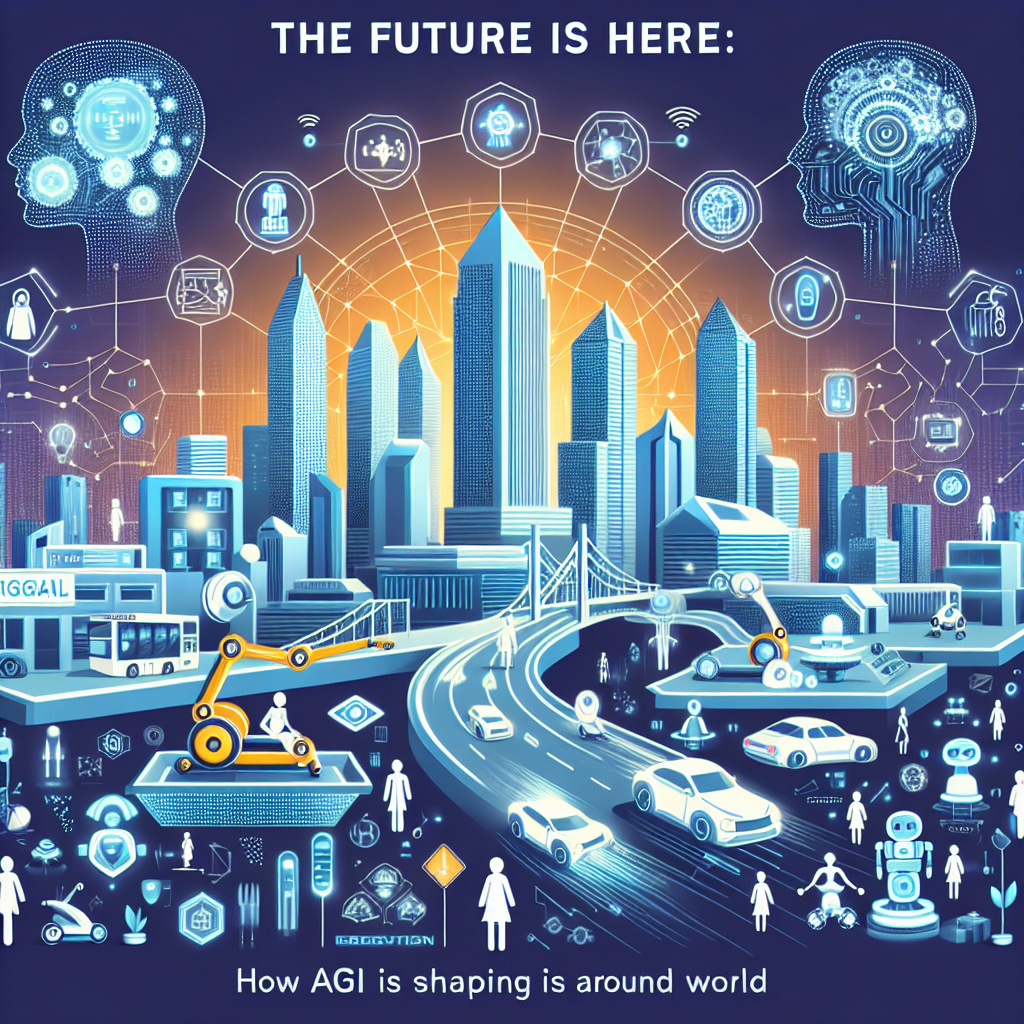The Future is Here: How AGI is Shaping the World Around Us
Artificial General Intelligence (AGI) is a term that is becoming increasingly common in discussions about the future of technology and society. AGI refers to the development of machines that have the ability to understand and learn any intellectual task that a human being can. This is in contrast to Artificial Narrow Intelligence (ANI), which is designed to perform specific tasks, such as playing chess or recognizing speech.
AGI has the potential to revolutionize many aspects of our lives, from healthcare and transportation to education and entertainment. In this article, we will explore how AGI is shaping the world around us and what the future may hold for this powerful technology.
The Rise of AGI
The concept of AGI has been around for decades, but recent advances in machine learning and artificial intelligence have brought us closer than ever to realizing this vision. Companies like Google, Facebook, and OpenAI are investing heavily in AGI research, with the goal of creating machines that can think, reason, and learn like humans.
One of the key milestones in the development of AGI was the creation of AlphaGo, a computer program developed by Google DeepMind that defeated the world champion Go player in 2016. This achievement demonstrated the power of machine learning and reinforced the belief that AGI is within reach.
Since then, researchers have made further progress in areas such as natural language processing, computer vision, and robotics. These advancements are laying the foundation for a future in which machines will be able to perform a wide range of tasks with human-like intelligence.
Applications of AGI
The potential applications of AGI are vast and diverse. In healthcare, AGI could be used to analyze medical images, diagnose diseases, and develop personalized treatment plans. In transportation, AGI could help optimize traffic flow, improve safety, and enable autonomous vehicles to navigate complex environments.
In education, AGI could provide personalized tutoring, adapt learning materials to individual students, and even create new educational content. In entertainment, AGI could be used to create immersive virtual worlds, generate realistic characters, and develop interactive storytelling experiences.
AGI also has the potential to revolutionize industries such as finance, agriculture, and manufacturing. By automating repetitive tasks, optimizing processes, and making decisions based on complex data, AGI could help businesses operate more efficiently and effectively.
Challenges and Concerns
Despite its promise, AGI also presents significant challenges and concerns. One of the main challenges is ensuring the safety and reliability of AGI systems. Because AGI machines are designed to learn and adapt on their own, there is a risk that they could make mistakes or behave in unpredictable ways.
Another concern is the potential impact of AGI on the job market. As machines become more capable of performing tasks that were once done by humans, there is a risk of widespread unemployment and economic disruption. This could lead to social unrest and political instability if not addressed proactively.
There are also ethical concerns surrounding the use of AGI, such as the potential for bias in decision-making, invasion of privacy, and misuse of the technology for malicious purposes. These issues will need to be carefully considered and addressed as AGI continues to advance.
FAQs
Q: How far are we from achieving AGI?
A: While significant progress has been made in the field of artificial intelligence, true AGI is still a long way off. Researchers are working on overcoming key challenges such as common sense reasoning, self-awareness, and emotional intelligence, which are essential components of human-level intelligence.
Q: Will AGI replace humans in the workforce?
A: It is possible that AGI will automate many tasks currently performed by humans, leading to job displacement in some industries. However, new opportunities will also be created as AGI enables new ways of working and opens up new fields of innovation.
Q: What are the ethical implications of AGI?
A: The ethical implications of AGI are complex and multifaceted. It is important to ensure that AGI systems are developed and used in a responsible and ethical manner, with safeguards in place to prevent harm to individuals or society as a whole.
Q: How can we prepare for the future of AGI?
A: To prepare for the future of AGI, it is important to invest in education and training programs that equip individuals with the skills needed to thrive in a changing workforce. It is also essential to engage in open and transparent discussions about the potential impact of AGI on society and to develop policies and regulations that promote the responsible development and use of the technology.
In conclusion, AGI has the potential to revolutionize many aspects of our lives and reshape the world around us. While there are challenges and concerns that must be addressed, the future of AGI is bright and full of possibilities. By working together to harness the power of AGI for the benefit of all, we can create a future that is truly intelligent, inclusive, and sustainable.

